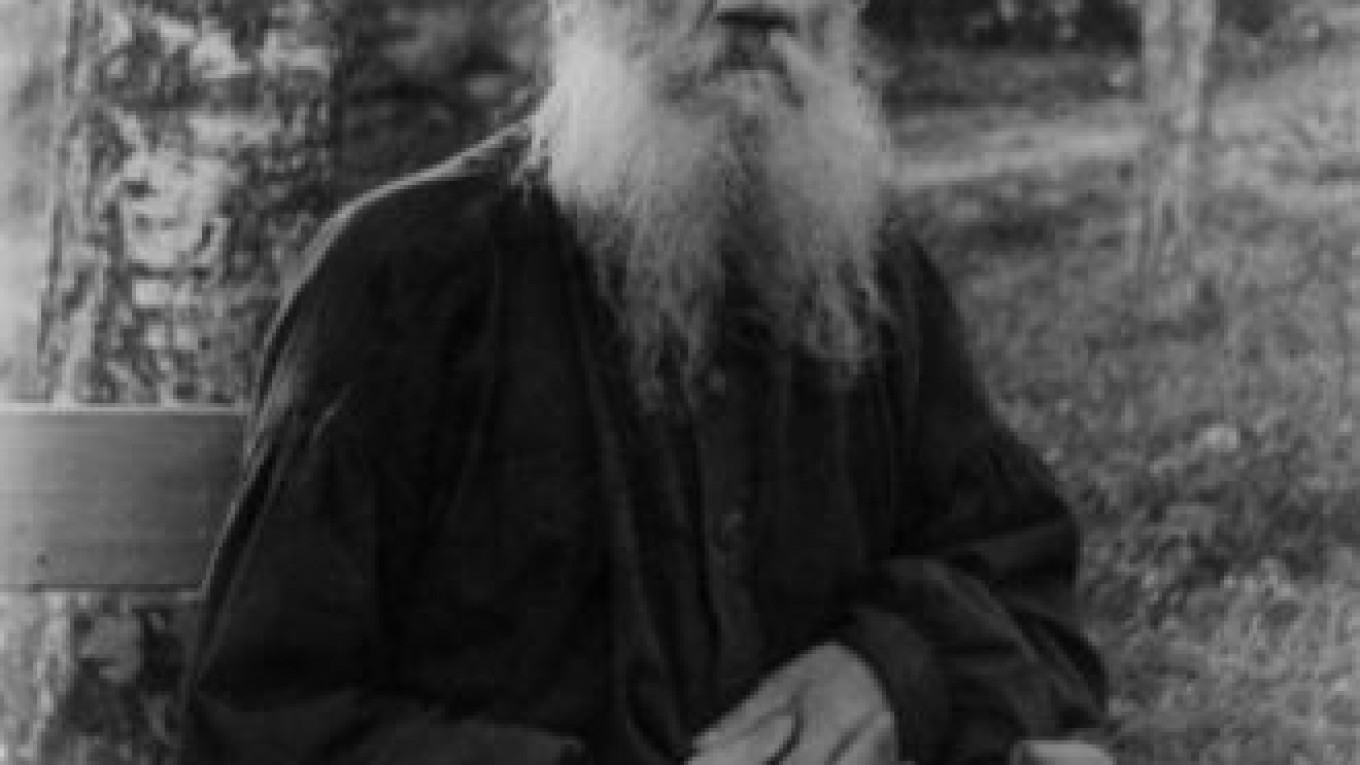The Russian Orthodox Church refused to rehabilitate him and the state chose to ignore him, but the official silence surrounding the 100th anniversary of Leo Tolstoy’s death has not muffled praise or quelled debate.
Unlike the 150th anniversary of writer Anton Chekhov’s birth this year — which prompted an emotional outpouring from President Dmitry Medvedev and spurred a nationwide festival — the November centenary of one of Russia’s most universally acclaimed writers has been met with surreal silence.
Neither Medvedev nor Prime Minister Vladimir Putin mentioned the “War and Peace” author for the actual centenary on Nov. 20th, the Culture Ministry planned no events in his honor, and there were no major programs on state television — Russia’s favored outlet for tributes.
“There was a deathly silence … Tolstoy is a reminder of greatness, of humanity and their significance. And that is why we prefer not to remember,” popular novelist Dmitry Bykov wrote in business magazine Profil earlier this month.
In a veiled swipe at the government, Bykov added that in today’s Russia “not a single law has remained, nor honesty, nor conscience … It is better for today’s Russians not to think about this.”
Russia is peppered with museums dedicated to Tolstoy, and his vast countryside estate — Yasnaya Polyana, about 190 kilometers south of Moscow — is visited by thousands of Russians every year.
But the white-bearded, prolific writer — revered the world over for addressing war, love, God and family in epic novels such as “War and Peace” and “Anna Karenina” — is still considered a touchy subject in his homeland.
“He was a dissident in every sense of the word, and I think the government and church shivered a bit when Tolstoy raised his voice,” Andrei Konchalovsky, co-producer of “The Last Station,” a motion picture depicting Tolstoy’s tumultuous final year, told reporters on Monday for the film’s Russian release.
The German-funded production, which earned Oscar nominations for British actors Helen Mirren and Christopher Plummer, was welcomed in Russia by Tolstoy enthusiasts and academics.
“Russia must freely understand that a century of deaf and dumb history has passed, and that every little meaningful glance into the last century, seen through smart and kind eyes as with this film, is very useful,” said Gasan Guseinov, a literature professor at Moscow State University.
The intelligentsia were also dismayed that quality films about Russia’s artistic masters were being made abroad.
“This happens because we are afraid we are unable to make the films on an equal level,” said Natalia Voronova, a lecturer at the Peoples’ Friendship University.
Mirren, who plays Tolstoy’s long-suffering wife Sophia, said Monday that Tolstoy would have wanted “to be loved in the hearts of the Russian people.”
Though a devout Christian, Tolstoy’s radical theological philosophy — he compared the Russian Orthodox Church to witchcraft and preached that guidance should come from within and not from the church — got him excommunicated in 1901. Ahead of the Nov. 20 centenary, Sergei Stepashin, head of Russia’s Book Union and a former prime minister, wrote an open letter to Patriarch Kirill to forgive the author. “I ask you, Your Holiness, to show today the compassion that only the church can afford,” he wrote in Rossiiskaya Gazeta.
The church was quick to respond, to the same paper, saying Tolstoy was Russian literature’s “most tragic personality.”
“Several generations of Orthodox readers both at home and abroad appreciate Tolstoy’s literary work … However, his excommunication will not be lifted,” wrote Tikhon Shevkunov, executive secretary of the Patriarch’s Arts Council.
A Message from The Moscow Times:
Dear readers,
We are facing unprecedented challenges. Russia's Prosecutor General's Office has designated The Moscow Times as an "undesirable" organization, criminalizing our work and putting our staff at risk of prosecution. This follows our earlier unjust labeling as a "foreign agent."
These actions are direct attempts to silence independent journalism in Russia. The authorities claim our work "discredits the decisions of the Russian leadership." We see things differently: we strive to provide accurate, unbiased reporting on Russia.
We, the journalists of The Moscow Times, refuse to be silenced. But to continue our work, we need your help.
Your support, no matter how small, makes a world of difference. If you can, please support us monthly starting from just $2. It's quick to set up, and every contribution makes a significant impact.
By supporting The Moscow Times, you're defending open, independent journalism in the face of repression. Thank you for standing with us.
Remind me later.


